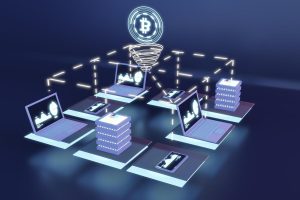It is common for most of us to concentrate on one major problem when considering the future of work: artificial intelligence.
- Will robots replace us at work?
- Will I need to undergo new industry training?
- How will AI affect my employment in the future?
Although all of these worries are reasonable, cognitive technologies are only one aspect of the significant change currently taking place. Many concurrent trends fundamentally alter the nature of labor and will likely impact society and individuals, enterprises, and other organizations soon. The five primary themes in re-imagining the future of work include new technologies as one component. Still, we also need to consider new workplace habits and attitudes, the effects of the millennial workforce, and a shift towards a nomad working culture.
The three key W’s of any organization are impacted by the forces of change that are guiding this workplace evolution:
The Work:
It is also referred to as “the what.” Which jobs are automatable? In what ways will robots, cognitive, and AI technologies alter the job itself?
The Workforce:
It is sometimes referred to as “the where.” Who will carry out the task with the emergence of new talent platforms and the gig economy? How can companies utilize a steady flow of talent permanently?
The Workplace:
In other words, how are workplaces reshaping brick-and-mortar offices and in-person presence with new combinations of collaborative, teaming, and digital reality technologies?

What Will The Future Of Work Look Like?
Concern and uncertainty are natural reactions to any significant change. Not only do we need to think about the overt changes, but we also need to evaluate the effects on our emotions and our minds. We must be worried about several difficult concerns, particularly the moral dilemmas of collaborative human-machine systems.
However, this is not the first time the cultural conception of work has undergone a full transformation:
- Craftsmanship, complete product manufacturing, and the craftsman’s whole responsibility were all characteristics of the preindustrial workforce.
- The fragmentation of repetitive jobs, the specialization of responsibilities, and quick, inexpensive manufacturing processes were all products of the industrial revolution.
The idea of employment is currently being reinvented as we move toward a cognitive revolution. In place of “doing” and “task accomplishment,” we are increasingly focusing on problem-solving, managing interpersonal interactions, and fostering human-machine cooperation. We must accept the idea of change if we want these changes to occur as smoothly as possible. Technology must be viewed as a tool to support labor rather than a method to replace it. In reality, The World Economic Forum projects that despite the possibility of a million jobs being lost, 1.75 million will create.

What Changes Can Businesses Make To Adapt To The Future Of Work?
Future occupations will require a lot more technical expertise. Human abilities, including problem-solving, communication, interpretation, design, and data analysis, will become more in demand as machines take over repetitive, routine work. We must alter how we think about “work” to make this viable. We need to start from scratch, train and up skill the workforce to take on new tasks and responsibilities, accept the alternative, diverse, and unique skill sets, and get ready for less “conventional” forms of communication.
Redefining The World Of Work:
We shall examine the new-work period via the prism of fundamental yet novel themes in this hub of creative articles. The articles will serve as a stepping-stone for employees, entrepreneurs, and seasoned business owners. The articles will act as a launching pad for both new business owners and experienced ones. Creativity and thinking beyond the box are vital in business, just like in every other facet of life. By doing this, you can gain an advantage over other businesses and distinguish yourself from similar businesses. We will inspire you to look for the gaps in this world, approach your work or position in fresh ways, and use your imagination to identify factors in these motivating articles. Avoiding those restrictions might expose you to fresh perspectives and opportunities.

This collection of motivating thought-leadership articles covers the following subjects:
The post-COVID workforce: incorporating resilience into your workplace, and how Gen Z trends are rising out of the ashes of the epidemic, using the buzzword ‘resilience.’
Future industries: Transforming how people think about “work” to reflect the emerging new sectors. A look at nanotechnology, the creator economy, studies on aging, sustainability, biotechnology, quantum computing, artificial intelligence, and other topics are included.
Remote working and the demolition of the office space: Moving away from a brick-and-mortar office will affect how people work physically and psychologically.
Upskilling, adapting, and evolving: We’ll look at the necessary adjustments that all organizations must take into account as they upskill and evolve.
Gen-Z work habits: An analysis of Gen-Z that includes the new Gen-Z work habits, the effects of Gen-Z joining the workforce, and the shift to a gig economy.
Nobody can forecast with absolute precision how the workforce will appear in the future, what new industries will develop, or what new talents will be in great demand. However, we know that the future workplace will be profoundly different from how it is today and that change will occur more quickly than anyone could have anticipated. It may be time for us to rethink how we define “work” since the COVID-19 pandemic may have compelled us to do so earlier than we had expected. These articles will walk you through creating a happier, healthier, more resilient, and fair future demanded by the reset for all employers, employees, and business owners.



